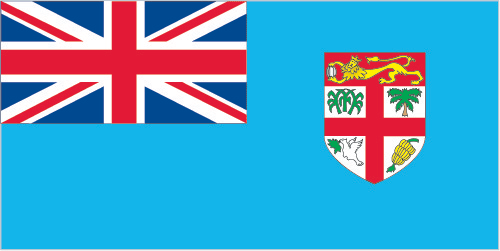
Fiji became independent in 1970 after nearly a century as a British colony. Democratic rule was interrupted by two military coups in 1987 caused by concern over a government perceived as dominated by the Indian community (descendants of contract laborers brought to the islands by the British in the 19th century). The coups and a 1990 constitution that cemented native Melanesian control of Fiji led to heavy Indian emigration; the population loss resulted in economic difficulties, but ensured that Melanesians became the majority. A new constitution enacted in 1997 was more equitable. Free and peaceful elections in 1999 resulted in a government led by an Indo-Fijian, but a civilian-led coup in May 2000 ushered in a prolonged period of political turmoil. Parliamentary elections held in August 2001 provided Fiji with a democratically elected government led by Prime Minister Laisenia QARASE. Re-elected in May 2006, QARASE was ousted in a December 2006 military coup led by Commodore Voreqe BAINIMARAMA, who initially appointed himself acting president but in January 2007 became interim prime minister. Since taking power BAINIMARAMA has neutralized his opponents, crippled Fiji's democratic institutions, and initially refused to hold elections. In 2012, he promised to hold elections in 2014.
timber, fish, gold, copper, offshore oil potential, hydropower
arable land: 9.17%
permanent crops: 4.65%
other: 86.17% (2011)
903,207 (July 2014 est.)
country comparison to the world: 162
iTaukei 56.8% (predominantly Melanesian with a Polynesian admixture), Indian 37.5%, Rotuman 1.2%, other 4.5% (European, part European, other Pacific Islanders, Chinese) note: a 2010 law replaces 'Fijian' with 'iTuakei' when referring to the original and
Protestant 45% (Methodist 34.6%, Assembly of God 5.7%, Seventh Day Adventist 3.9%, and Anglican 0.8%), Hindu 27.9%, other Christian 10.4%, Roman Catholic 9.1%, Muslim 6.3%, Sikh 0.3%, other 0.3%, none 0.8% (2007 est.)
English (official), Fijian (official), Hindustani
definition: age 15 and over can read and write
total population: 93.7%
male: 95.5%
female: 91.9% (2003 est.)
Suva (on Viti Levu)
republic
10 October 1970 (from the UK)
Independence Day, second Monday of October (1970)